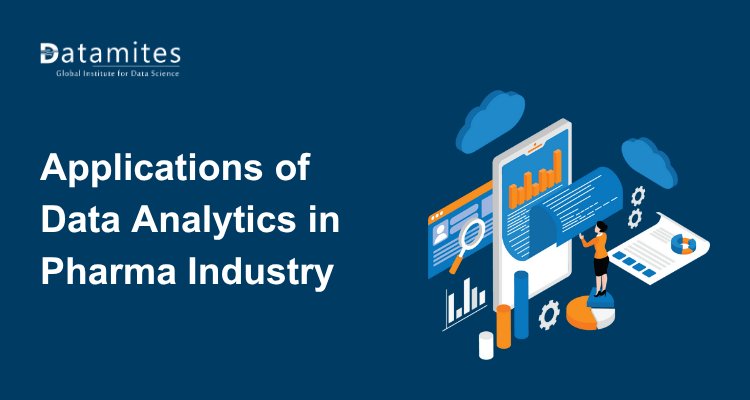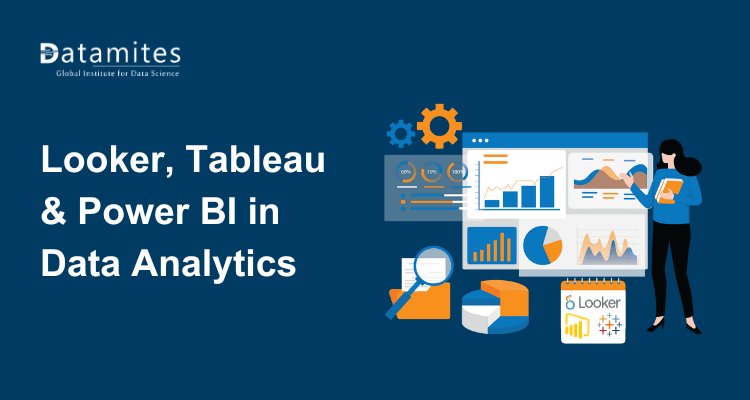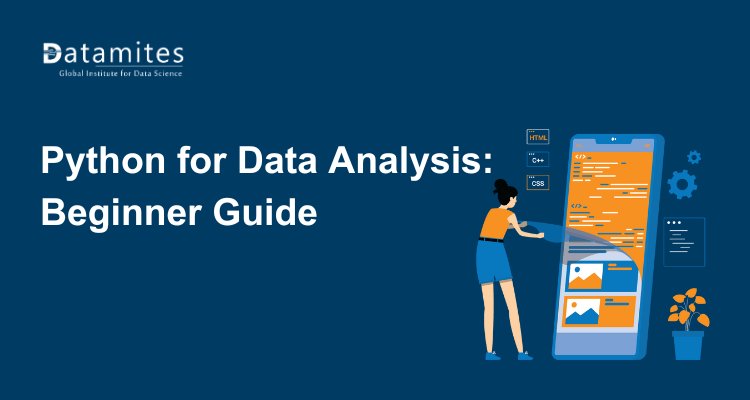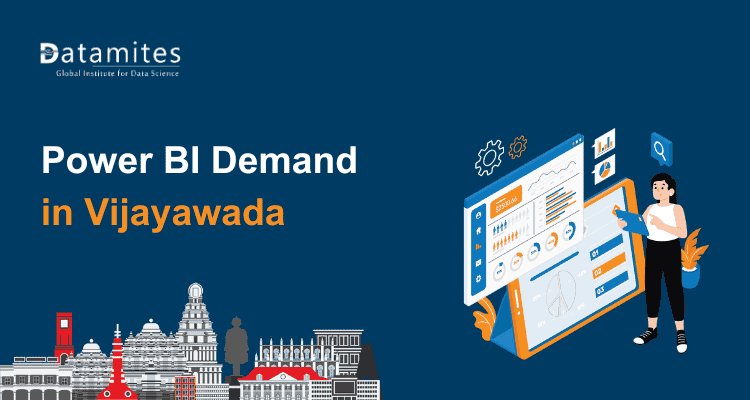Applications of Data Analytics in Pharma Industry
Discover how pharma analytics transforms drug discovery, clinical trials, personalized medicine, and supply chain optimization. Explore benefits, challenges, trends, and career opportunities in pharmaceutical data analytics with expert training programs in India.

The rapid growth of data analytics in the pharma industry is revolutionizing how pharmaceutical companies innovate, operate, and deliver healthcare solutions. With expanding medical data, advanced analytics tools, and skilled talent, pharmaceutical data analytics now drives research, development, and efficiency.
As demand for data professionals surges, many pursue a data analyst course or specialized data analyst training to gain an edge. This article explores key applications, benefits, challenges, and future trends, showing how data analysis enhances patient outcomes and boosts operational performance.
Data analysis in the pharmaceutical industry
Data analysis in the pharmaceutical industry helps transform complex datasets into actionable insights, supporting drug discovery, clinical trials, personalized medicine, supply chain management, and safety monitoring, ultimately improving decision-making, innovation, and efficiency across the entire pharma value chain.
According to Wiseguy reports, the Commercial Pharmaceutical Analytics Market, valued at USD 7.15 billion in 2023, is expected to grow from USD 7.78 billion in 2024 to USD 15.3 billion by 2032, growing at a CAGR of approximately 8.82% between 2025 and 2032, driven by increasing demand for advanced data-driven solutions in the pharmaceutical sector.
Refer to the articles below:
- Data Preparation for Data Analysis
- Introduction to ETL in Data Analytics
- Applying Data Analytics to Finance
Key applications of data analytics in pharmaceutical research
Data analytics is revolutionizing the pharmaceutical industry by enabling drug discovery, clinical trial optimization, personalized medicine, supply chain efficiency, and drug safety monitoring, transforming vast datasets into actionable insights that enhance decision-making, innovation, and operational excellence across the healthcare value chain.
According to a MarketsandMarkets Healthcare & Pharma Analytics Market report (2024), the global pharma analytics market is projected to grow at a CAGR of over 15%, driven by the adoption of advanced analytics platforms, business intelligence (BI), and predictive analytics. These innovations empower the pharmaceutical industry to reduce costs, accelerate drug approval timelines, and improve patient care outcomes.
1. Clinical trials optimization using data analytics
Clinical trials are among the most expensive and time-intensive stages of drug development. Data analytics in the pharma industry enables researchers to design more efficient trials by identifying the right patient groups, predicting enrollment challenges, and tracking real-time trial progress.
With predictive analytics and prescriptive analytics and machine learning models, pharma companies can detect early signs of inefficiencies, adjust study parameters, and reduce trial delays.
Professionals trained Top IT courses in demand ensure the integrity of trial data, enhance compliance with regulatory standards, and help justify the investment in analytics by significantly accelerating drug development.
2. Personalized medication through data analysis
The shift towards personalized medicine is revolutionizing healthcare delivery. By leveraging genetic, environmental, and lifestyle data, pharma analytics enables the creation of targeted treatment plans for individual patients.
Advanced data preparation and analysis tools allow researchers to predict how specific patient groups will respond to certain drugs. For instance, analyzing genomics and biomarker data helps match therapies with patients most likely to benefit, improving treatment outcomes and reducing side effects. This approach not only enhances patient satisfaction but also optimizes using data analytics in healthcare resources.
3. Supply chain and manufacturing optimization with data analytics
In pharmaceutical manufacturing, efficient supply chain management is crucial to ensure drug availability and cost-effectiveness. Data analytics in pharma supports demand forecasting, inventory monitoring, and logistics optimization.
By applying Real-time analysis in pharma, using pharma analytics to manufacturing and distribution networks, companies can prevent stockouts, manage cold chain logistics for temperature-sensitive medicines, and respond quickly to market changes. Data Analytics driven supply chains are particularly valuable in addressing disruptions, such as those experienced during the COVID-19 pandemic.
4. Using analytics for drug discovery and development
The integration of big data analytics and ML and AI in drug discovery has significantly shortened the research cycle. By analyzing vast datasets from laboratories, genomics research, and historical clinical studies, machine learning algorithms can predict which drug compounds are most likely to succeed.
This reduces the need for costly trial-and-error experiments, lowers R&D expenses, and speeds up the path to market. According to Deloitte’s 2024 Global Life Sciences Report, AI-powered analytics can cut drug development timelines by up to 50%, making it a game changer for pharmaceutical innovation.
5. Data analytics in drug safety monitoring
Protecting patient safety is a vital duty of the pharmaceutical industry. Pharmacovigilance analytics uses diverse data sources such as electronic health records, adverse event reports, and even social media to detect early signs of drug-related risks.
Through ETL (Extract, Transform, Load) processes, large-scale unstructured data is consolidated, enabling analysts to identify safety patterns quickly. These insights help companies take corrective actions, update labeling, or issue recalls before risks escalate, protecting public health and regulatory compliance.
6. Analysing regulatory compliance and quality control
The pharmaceutical industry functions within one of the most strictly regulated environments. Data analytics tools streamline regulatory reporting by ensuring data accuracy, traceability, and audit readiness.
Automated compliance dashboards allow pharma companies to monitor quality metrics in real time and maintain adherence to FDA, EMA, and WHO guidelines. This approach not only minimizes the risk of penalties but also fosters trust with data analytics in healthcare providers and patients.
Refer to the articles below:
- What would be the Data Analyst Course Fee in India
- Data Analyst Career Scope in India
- How to Become a Data Analyst in India
Future trends in Pharmaceutical data analytics
Future pharmaceutical data analytics will integrate Artificial Intelligence, Machine Learning, IoT, wearables, and genomics to improve care, optimize treatments, and track diseases. Cloud analytics, big data, and predictive models are emerging trends in data analytics in will revolutionize drug discovery, supply chains, and patient safety with faster, smarter solutions.
According to Statista, retailers using AI and machine learning achieve 5–6% higher sales and profit growth. Similarly, in pharmaceutical data analytics, investing in specialized data analytics training is vital for enabling clinical innovations and improving operational efficiency in today’s evolving healthcare landscape.
Challenges in implementing data analysis in pharma
While data analytics in the pharma industry brings immense opportunities, there are several key challenges that can impact its success:
- Lack of data privacy and compliance – The pharmaceutical sector deals with highly sensitive patient information. Adhering to strict regulations like HIPAA and GDPR is essential to maintain trust and avoid legal repercussions.
- Integration complexity issue – Pharma data is generated from multiple systems, formats, and departments. Consolidating this diverse information into a unified platform can be technically challenging and time-consuming.
- High implementation costs – Setting up advanced analytics systems involves significant investment in infrastructure, software, and tools. This makes it a major decision, especially for smaller companies.
- Shortage of skilled talent – The lack of trained professionals with domain knowledge and analytical expertise limits progress. This talent gap also impacts the growth of a data analyst career in the pharma industry.
- Data quality issues – Incomplete, inconsistent, or outdated data can reduce the reliability of analysis. Poor-quality data leads to flawed insights, affecting strategic decisions and patient outcomes.
For aspiring professionals, mastering pharma data is a career advantage. A data analyst course builds skills to interpret complex datasets, and despite data analyst course fees, it’s a valuable investment as companies seek skilled analysts to boost efficiency and maintain competitiveness.
Refer to the articles below:
- Data Analyst Course Fee in Bangalore
- Data Analyst Course Fee in Hyderabad
- How much is the Data Analytics Course fee In Coimbatore
Enrolling in a Data Analyst course in Hyderabad or other leading cities like Pune, Chennai, Bangalore, Mumbai, Coimbatore, Ahmedabad, and Delhi provides aspiring professionals with valuable industry exposure, practical skills, and a solid foundation for a successful data analyst career.
DataMites Institute is a leading training provider in India, offering comprehensive, expert-led programs in Data Analytics, Data Science, Machine Learning, Artificial Intelligence, Python, IoT, and Data Engineering. The curriculum is designed to be industry-relevant, featuring hands-on projects, certified internships, placement assistance, and globally recognized certifications accredited by IABAC and NASSCOM FutureSkills.
With both online and offline learning modes, DataMites equips learners with future-ready skills to thrive in today’s competitive job market. The institute has a strong nationwide presence, delivering Data Analyst courses in Bangalore with placements and across major cities, including Pune, Hyderabad, Ahmedabad, Chennai, Coimbatore, Mumbai, Delhi, Jaipur, Kochi, and Kolkata.





